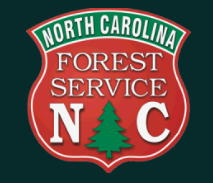Burn Ban Issued
go.ncsu.edu/readext?1062641
en Español / em Português
El inglés es el idioma de control de esta página. En la medida en que haya algún conflicto entre la traducción al inglés y la traducción, el inglés prevalece.
Al hacer clic en el enlace de traducción se activa un servicio de traducción gratuito para convertir la página al español. Al igual que con cualquier traducción por Internet, la conversión no es sensible al contexto y puede que no traduzca el texto en su significado original. NC State Extension no garantiza la exactitud del texto traducido. Por favor, tenga en cuenta que algunas aplicaciones y/o servicios pueden no funcionar como se espera cuando se traducen.
Português
Inglês é o idioma de controle desta página. Na medida que haja algum conflito entre o texto original em Inglês e a tradução, o Inglês prevalece.
Ao clicar no link de tradução, um serviço gratuito de tradução será ativado para converter a página para o Português. Como em qualquer tradução pela internet, a conversão não é sensivel ao contexto e pode não ocorrer a tradução para o significado orginal. O serviço de Extensão da Carolina do Norte (NC State Extension) não garante a exatidão do texto traduzido. Por favor, observe que algumas funções ou serviços podem não funcionar como esperado após a tradução.
English
English is the controlling language of this page. To the extent there is any conflict between the English text and the translation, English controls.
Clicking on the translation link activates a free translation service to convert the page to Spanish. As with any Internet translation, the conversion is not context-sensitive and may not translate the text to its original meaning. NC State Extension does not guarantee the accuracy of the translated text. Please note that some applications and/or services may not function as expected when translated.
Collapse ▲Burn ban issued for all North Carolina counties due to hazardous forest fire conditions
Due to increased fire risk, the N.C. Forest Service has issued a ban on all open burning and has canceled all burning permits statewide effective 8 a.m. Friday, March 21, until further notice.
“It is spring wildfire season in North Carolina, and we are seeing wildfire activity increase due to dry conditions,” said Agriculture Commissioner Steve Troxler. “With these ongoing conditions, a statewide burn ban is necessary to reduce the risk of wildfires starting and spreading quickly. Our top priority is always to protect lives, property and forestland across the state. It is imperative that folks adhere to this burn ban until further notice.”
is spring wildfire season in North Carolina, and we are seeing wildfire activity increase due to dry conditions,” said Agriculture Commissioner Steve Troxler. “With these ongoing conditions, a statewide burn ban is necessary to reduce the risk of wildfires starting and spreading quickly. Our top priority is always to protect lives, property and forestland across the state. It is imperative that folks adhere to this burn ban until further notice.”
Under North Carolina law, the ban prohibits all open burning in all 100 counties in this instance, regardless of whether a permit was previously issued. The issuance of any new permits has also been suspended until the ban is lifted. Anyone violating the burn ban faces a $100 fine plus $183 court costs. Any person responsible for setting a fire may be liable for any expenses related to extinguishing the fire.
The burn ban does not apply to fires started within 100 feet of an occupied dwelling. A local fire marshal has authority to issue a burn ban within that 100 feet space.
Local fire departments and law enforcement officers are assisting the N.C. Forest Service in enforcing the burn ban.
The N.C. Forest Service will continue to monitor conditions. Residents with questions regarding a specific county can contact their N.C. Forest Service county ranger or their county fire marshal’s office.
Learn about what you can do to protect your self with FIRE RESISTANT LANDSCAPING HERE: https://content.ces.ncsu.edu/fire-resistant-landscaping-in-north-carolina
Answers to FAQ
Q: What is open burning? A: Open burning includes burning leaves, branches or other plant material. In all cases, burning trash, lumber, tires, newspapers, plastics or other nonvegetative material is illegal.
Q: May I still use my grill or barbecue? A: Yes, if no other local ordinances prohibit their use.
Q: How should I report a wildfire? A: Call 911 to report a wildfire.
Q: How should I report a person who intentionally starts a wildfire? A: Call 911 to report a wildfire.
Q: My local fire marshal has also issued a burn ban for my county. What does this mean? A: The burn ban issued by the N.C. Forest service does not apply to a fire within 100 feet of an occupied dwelling. Local government agencies have jurisdiction over open burning within 100 feet of an occupied dwelling. The N.C. Forest Service has advised county fire marshals of the burning ban and has asked for their consideration of also implementing a burning ban. If a fire within a 100-foot area of a dwelling escapes containment, a North Carolina forest ranger may take reasonable steps to extinguish or control it. The person responsible for setting the fire may be liable for any expenses related to extinguishing the fire.
Q: Are there other instances which impact open burning? A: Local ordinances and air quality regulations may impact open burning. For instance, outdoor burning is prohibited in areas covered by Code Orange or Code Red air quality forecasts. Learn more about air quality forecasts at https://deq.nc.gov/about/
Q: Can I have a campfire when I go camping? A: Campfires would be considered open burning and are not exempt from the burn ban. During a burn ban, portable gas stoves or grills are alternate methods for cooking food while camping.
Q: What can I do to protect my house against the risk of wildfire? A: Learn about wildfire risk assessments and preparedness and prevention plans on the N.C. Forest Service website at https://www.ncforestservice.




